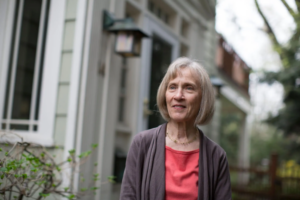Claudia Goldin Wins Nobel in Economics for Studying Women in the Work Force

Originally published by Jeanna Smialek for the New York Times
The Nobel Memorial Prize in Economic Sciences was awarded on Monday to Claudia Goldin, a Harvard professor, for advancing the world’s understanding of women’s progress in the work force.
She is the third woman to have won the economics Nobel, which was first awarded in 1969, and the first one to be honored with it solo rather than sharing in the prize.
Dr. Goldin, 77, has long been a trailblazer in the field — she was the first woman to be offered tenure in Harvard’s economics department, in 1989. Her wide-ranging work has delved into the causes of the gender wage gap, the evolution of women’s participation in the job market over the past 200 years, and the implications for the future of the labor force.
Why did the committee say she received the prize?
The Nobel committee announced the award in Stockholm, praising Dr. Goldin for her research on female employment, which showed that employment among married women decreased in the 1800s, as the economy moved away from agriculture and toward industry. Women’s participation then increased in the 1900s, as the service sector began to expand as a part of the economy.
Dr. Goldin has described the 1970s in particular as a “revolutionary” period in which women in the United States began to marry later, take strides in higher education, and make major progress in the labor market. Birth control pills became more easily available in those years, taking away what Dr. Goldin has called a “potent” reason for early marriage — and giving women more time to form identities outside of the home.
Dr. Goldin has also illustrated how the process of closing the gender wage gap has been uneven over the course of history. Recently, progress in closing it has been halting: Today, women in the United States make a little over 80 cents for every dollar a man makes.
In the past, gender wage gaps could be explained by education and occupation. But Dr. Goldin has shown that most of the earnings difference is now between men and women in the same jobs, the Nobel committee said. Notably, it kicks in after the birth of a woman’s first child.
In a 15-year study of business school students at the University of Chicago, for instance, Goldin and her colleagues found in one paper that the gap in pay started to widen a year or two after a woman had her first baby.
“Claudia Goldin’s discoveries have vast societal implications,” said Randi Hjalmarsson, a member of the committee and professor of economics at the University of Gothenburg.